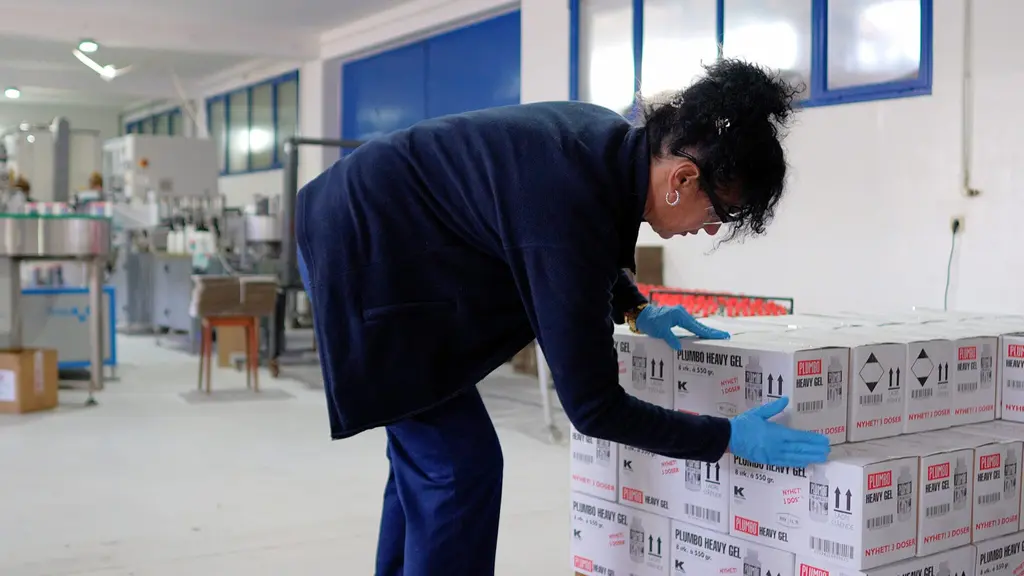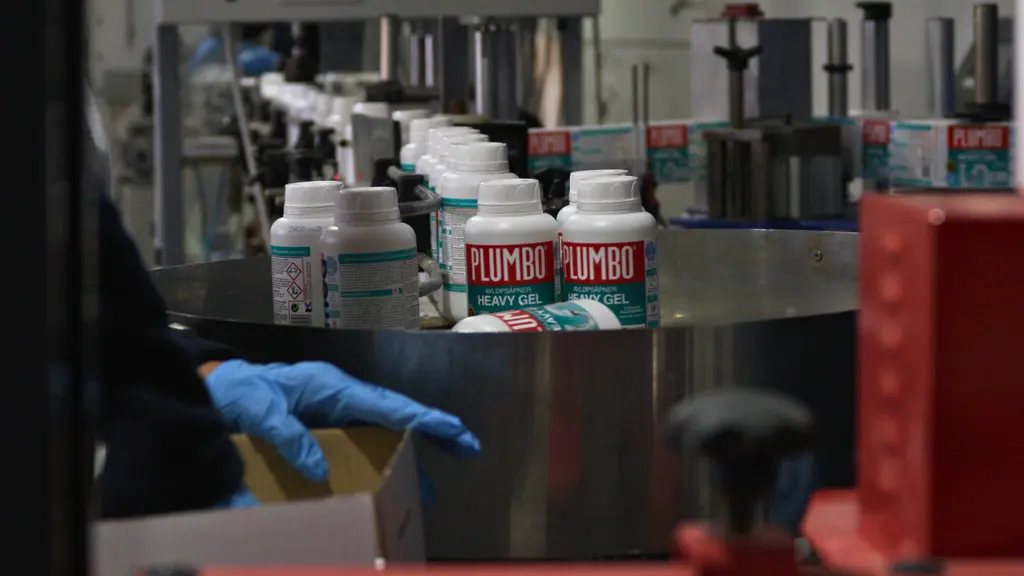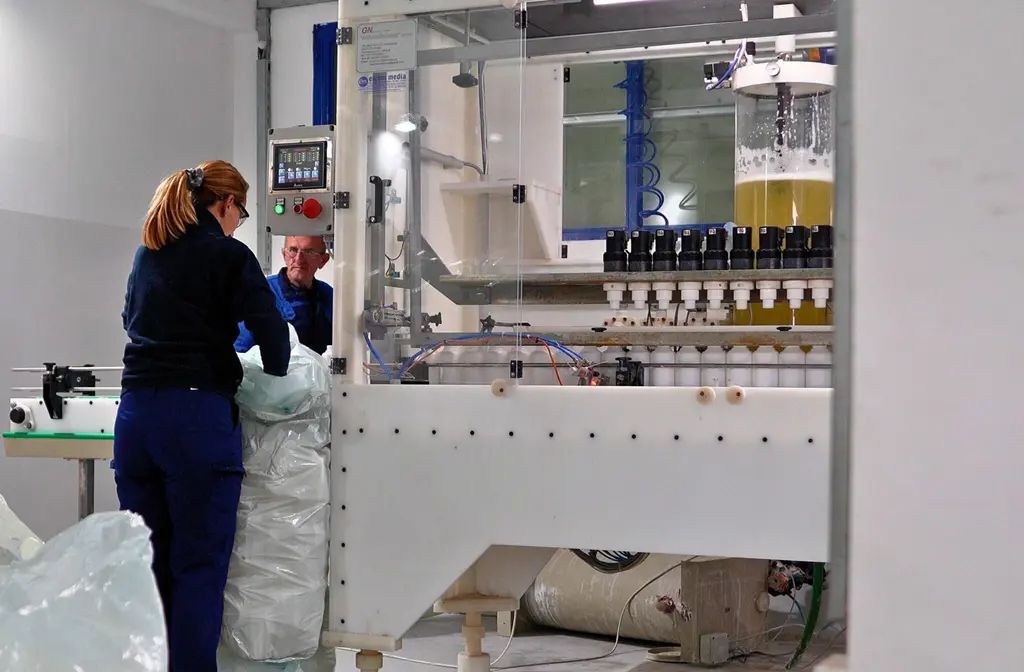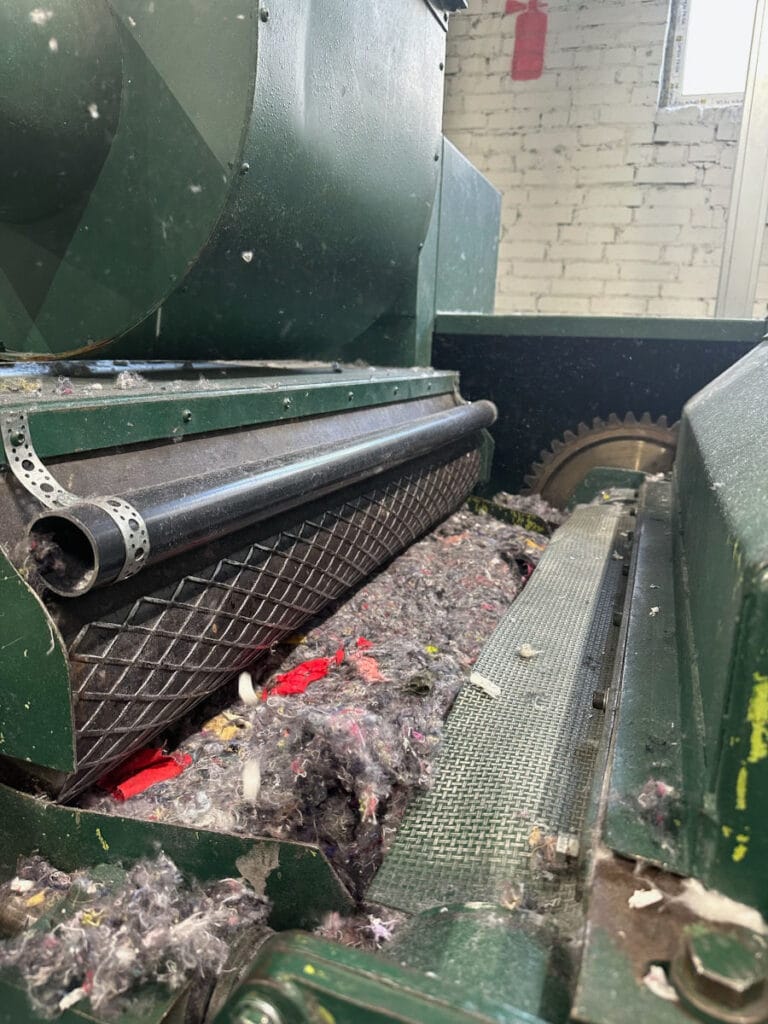
How Novohem improved workwear hygiene and cut contamination risks
Quick summary:
| Challenges | Solutions from Lindström | Benefits |
| Employees washed uniforms at home, causing inconsistent hygiene | Lindström provided hygienically controlled workwear with professional laundering | Reliable hygiene and reduced contamination risk |
| Lack of oversight and traceability in garment use | RFID tracking and eLindström portal for full garment monitoring | Transparency, control, and easy issue detection |
| Employee time spent washing and maintaining uniforms | Regular collection, washing, and delivery service | More time for core work, smoother daily operations |
| Growing hygiene and compliance requirements | Certified, audit-ready textile service (EN 14065, SBTi goals) | Easier compliance and stronger customer confidence |
In industries like the chemical one, where mistakes are not only costly but potentially dangerous, controlling every aspect of production is essential. And as production grows, workwear becomes an inseparable part of the control process.
The Serbian family company Novohem, with more than 25 years of experience in detergent, fabric softener, and silicone emulsion formulations, faced a typical problem of “home washing” of workwear: a lack of oversight and inconsistent hygiene standards.
Before partnering with Lindström, our employees mostly took their uniforms home and washed them themselves. We didn’t all maintain the same hygiene standards.
Dunja Krznarić, Project Manager at Novohem.
You could say that there’s a kind of business chemistry between Novohem and Lindström. Here’s the story of how that partnership developed.
Hygiene standard as a part of the production process
With the introduction of stricter internal standards and the expansion of production, Novohem needed a solution that ensured bacteriologically clean uniforms and controlled clothing circulation.
We realized we needed work uniforms that are bacteriologically clean, with high hygiene standards, and that’s how we partnered with Lindström.
Dunja Krznarić
Lindström’s workwear service model covers procurement, controlled industrial washing, maintenance, repairs, and recycling at the end of a garment’s lifecycle. These elements directly protect chemical production processes from cross-contamination and the lack of critical work equipment.
Lindström provides us with fully hygienic workwear, and they handle repairs and maintenance, which is very important to us.
Dunja Krznarić
In addition, Lindström guarantees compliance with hygiene and quality management requirements through international standards such as EN 14065 for hygiene and biocontamination, which is particularly relevant for industries with high cleanliness demands.


Efficiency in action: Fewer delays, less waste, greater employee safety
Operational reliability is crucial: the uniform must be clean, complete, and ready for every shift. The benefits of Lindström’s service is clear, as Dunja states:
The biggest benefit is the relief for employees. They leave their dirty clothes in a bin and the next day put on perfectly clean workwear.
Dunja Krznarić
This reduces delays due to inadequate uniforms and relieves the team from the logistics of washing and repairing clothes.
There’s also a visible impact on risk:
“Our hygiene standards improved. We no longer worried about contamination in production,” she says, adding that the solution is cost-effective long term because uniforms have a longer life cycle thanks to systematic repairs and workflow control.
Thanks to RFID technology, every garment can be tracked individually via the eLindström portal. If a piece of clothing isn’t being sent for washing or is being washed unusually often, it’s immediately checked.
This aligns with Lindström’s principles of circular textile services: maintenance, repairs, and lifecycle extension with transparent processes and no hidden costs.

Brand risk management and easier compliance
Our hygiene standards improved. We no longer thought about contamination in production.
Dunja Krznarić
In the chemical and related industries (food, HoReCa, healthcare), the ability to verify compliance data and track all relevant information is often a condition for signing and maintaining contracts.
Lindström follows required hygiene standards in washing, maintains verified procurement policies and sustainability goals (SBTi), and upholds a certification system that simplifies compliance and external audits for clients whose buyers expect traceable and verifiable procedures.

Conclusion: Focus on production, not on washing and maintenance
For Novohem, outsourcing workwear proved to be a strategic decision that reduces contamination risk, increases safety, and operationally relieves the team.
The key effects are precisely what growing B2B chemical (and other) production companies need when introducing standards and tightening internal and external controls: standardized hygiene, reliable delivery and maintenance, clear and transparent costs, and fewer operational interruptions.
I would recommend Lindström to everyone, because we can fully rely on them. High hygiene standards are very important for our industry, and with Lindström, we get exactly that.
Dunja Krznarić






